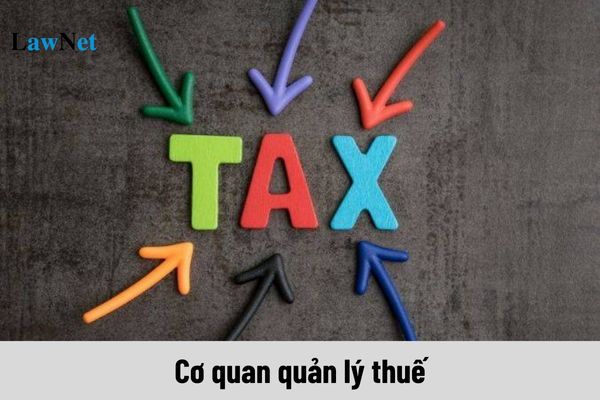What are the responsibilities of tax authorities organizing electronic information systems in Vietnam?
What are the responsibilities of tax authorities organizing electronic information systems in Vietnam?
Under Clause 7 of Article 8 of the Tax Administration Law 2019 regarding e-transactions in taxation, tax authorities organizing electronic information systems shall have the responsibility to:
- Provide guidelines, assist taxpayers, providers of e-transaction services in taxation, banks and relevant organizations in carrying out e-transactions in taxation;
- Develop, manage, operate the electronic tax information receipt and processing system, ensuring security, safety, confidentiality and continuation;
- Develop information sharing systems, provide information on amount of tax paid to the state budget, on electronic tax payments by taxpayers to relevant agencies, organizations, individuals so as to process administrative procedures for taxpayers as prescribed by law;
- Update, manage, provide information on registration of electronic tax transactions of taxpayers; verify e-transactions between taxpayers collecting organizations so as to implement administration of tax and of revenues of the state budget;
- Process administrative tax procedures electronically;
- In case electronic records of taxpayers are already available in databases of tax authorities, tax authorities and tax officials shall use such data and must not request taxpayers to submit physical tax dossiers or tax payment records.

What are the responsibilities of tax authorities organizing electronic information systems in Vietnam? (Image from the Internet)
What are the duties and powers of the tax authority in Vietnam?
Duties:
According to Article 18 of the Tax Administration Law 2019, the duties of the tax authority include:
- Organize collection of tax and other amounts payable to the state budget by tax regulations and other relevant provisions.
- Disseminate and provide guidelines on tax regulations; publish tax procedures on tax authorities’ premises and websites and via mass media.
- Provide explanation and information related to the determination of tax liabilities to taxpayers; take responsibility for publicly announcing tax rates of household and individual businesses in communes.
- Protect confidentiality of information of taxpayers, except for information provided to competent authorities or publicly announced as prescribed by law.
- Consider tax exemption; tax reduction; cancellation of tax debts, late payment interest, penalties; late payment interest and penalty exemption; late payment interest cancellation; extension of tax payment deadline; tax payment by installments; tax debt freezing, tax cancellation; settlement of overly paid tax, late payment interest, penalties; tax refund as prescribed in this Law and other relevant provisions.
- Confirm tax liability fulfillment of taxpayers upon request as prescribed by law.
- Settle complaints and denunciations related to the implementation of tax regulations as authorized.
- Provide tax-related records, conclusions and/or tax decisions after tax audits/inspections for taxpayers and provide explanation upon request.
- Compensate taxpayers in accordance with provisions on the State’s compensation responsibilities.
- Carry out assessment to determine tax liabilities of taxpayers as requested by State authorities.
- Develop and organize the electronic information systems and apply information technology to e-transactions in taxation.
Powers:
Pursuant to Article 19 of the Tax Administration Law 2019, the tax authority's powers include:
- Request taxpayers to provide information and/or materials related to the determination of tax liabilities, including information on investment value; transaction IDs and contents of accounts opened at commercial banks and/or other credit institutions and explaining tax calculation, tax declaration and/or tax payment.
- Request relevant organizations and/or individuals to provide information and/or materials related to the determination of tax liabilities and cooperate with tax authorities in implementing provisions on taxation.
- Conduct tax audits/inspections as prescribed by law.
- Impose fixed tax.
- Enforce tax decision.
- Impose penalties for administrative violations of tax administration as authorized; publish tax-related regulatory violations on mass media.
- Implement preventive measures and ensuring that actions are taken against tax-related administrative violations.
- Delegate collection of some taxes to agencies, organizations and/or individuals in accordance with the Government’s provisions.
- Apply advance pricing agreement to taxpayers and tax authorities of foreign countries and territories with whom Vietnam signed and acceded to agreements on prevention of double taxation and tax evasion for income tax.
- Purchase information, materials and data from domestic and foreign providers to serve tax administration; pay for delegation of tax collection from collected tax or from budget of tax authorities as prescribed in the Government’s provisions.
What are the rules for tax administration in Vietnam?
Pursuant to Article 5 of the Tax Administration Law 2019, the rules for tax administration implementation are as follows:
- All organizations, households, household businesses, individuals shall pay their taxes in compliance with the law.
- Tax authorities and other State agencies tasked with revenue administration shall implement tax administration as prescribed in this Law and other relevant provisions, ensuring publicity, transparency, equality and ensuring legitimate rights and benefits of taxpayers.
- Agencies, organizations, individuals are responsible for participating in tax administration as prescribed by law.
- Implement reform of administrative procedures and application of modern information technology to tax administration; apply tax administration rules in accordance with international practice, including regulations of tax liabilities determined by nature of activities and transactions, regulations of risk management in tax administration and other regulations suitable with Vietnamese conditions.
- Take priority measures when carrying out tax-related procedures for imported and exported goods in compliance with provisions on customs and Governmental provisions.

